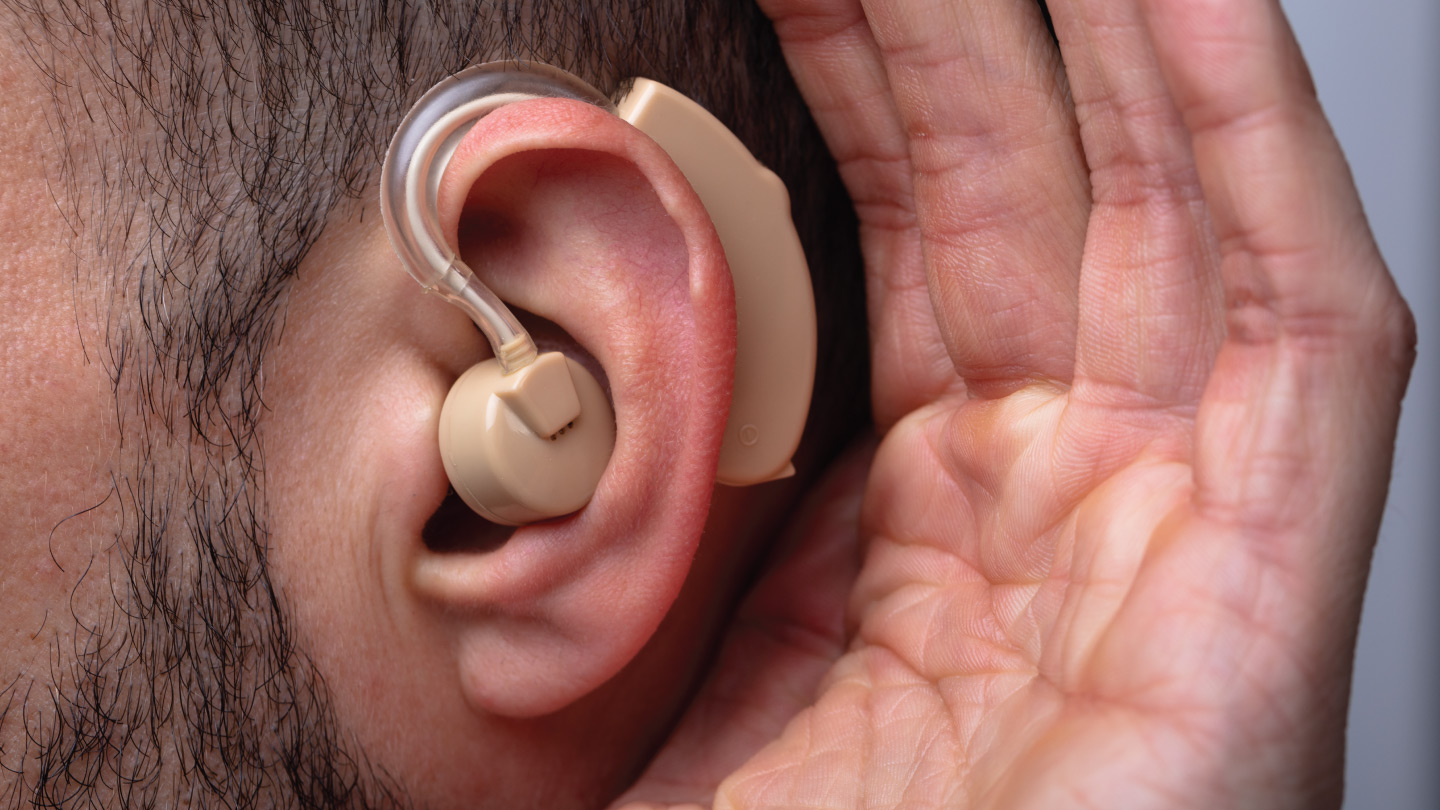Medical
The Hidden Link Between Hearing Loss, Loneliness, and Fading Memory
Hearing loss interacts deeply with emotional, social, and cognitive systems. When combined with loneliness, the risk to memory and thinking functions is especially strong.

About 20 per cent of the world's population experiences some form of hearing loss for various reasons, with ageing and exposure to excessive noise being the primary causes. Which means that roughly one in five people is affected. Hearing loss becomes more common as people age, but it isn’t just about difficulty in understanding conversations or needing to increase the TV volume. Hearing loss, particularly when combined with feelings of loneliness, even when socially connected, can lead to faster memory decline and a higher risk of cognitive impairment. By understanding the interaction between hearing, emotions, and cognition, we can identify ways to prevent and intervene in these issues.
Recent Researches on How Hearing Loss Fuels Memory Decline:
“Profiles of social isolation and loneliness as moderators of associations between hearing impairment and cognitive aging” (2025 study, published in Communications Psychology). The key finding of this study was that hearing impairment is associated with steeper declines in memory & executive function over time. Crucially, those who were non-isolated but lonely (i.e., felt lonely despite having social contacts) showed worse memory decline associated with hearing impairment than those who were neither isolated nor lonely.
“Hearing Loss, Loneliness, and Social Isolation” (2020 study published in the Journal of American Academy of Otolaryngology-Head and Neck Surgery). This review examined how hearing loss contributes to loneliness and social isolation, which in turn are risk factors for declines in cognition and mental health. The findings pointed out that hearing loss tends to reduce social engagement, raising the risk of loneliness, which then is associated with poorer memory and a higher risk of dementia.
Related Story: When Earbuds Bite Back, A Friendly Warning on Hearing Loss
“Is There an Association Between Untreated Hearing Loss, Social Isolation and Loneliness, and Psychological Discomfort in Older Adults?” (2022 study published in BMC Geriatrics). This research revealed a significant association between untreated hearing loss and emotional loneliness, which refers to the feeling of lacking emotional support. Additionally, hearing loss was correlated with symptoms of depression, anxiety, and stress.
A study conducted by Johns Hopkins Medicine on “The Hidden Risks of Hearing Loss” tracked 639 adults over approximately 12 years and revealed significant findings regarding hearing loss and dementia risk. The research showed that mild hearing loss doubled the risk of developing dementia, moderate hearing loss tripled the risk, and severe hearing loss increased it by about five times. Additionally, brain imaging suggested that hearing loss may contribute to accelerated atrophy (shrinking) of certain brain regions.
Related Story: Over-the-Counter, Overlooked: The Dementia Risk Few Talk About
Protecting the Ageing Brain: Pathways for Action:
It is clear that untreated hearing loss is no longer just an “ageing inconvenience” but a modifiable risk factor for dementia. This means interventions in midlife and older age could realistically alter cognitive trajectories for millions of people. The Lancet Commission on Dementia Prevention, Intervention and Care (2020) identified hearing loss as the largest modifiable risk factor for dementia in midlife, greater than smoking, hypertension, or diabetes. Preventive steps include:
Screen early and regularly
Routine hearing screening, especially from midlife, is crucial. Most adults wait nearly a decade after noticing problems before seeking help. By then, both neural and social consequences are already ingrained. Integrating audiology into primary care, geriatric clinics, and even memory clinics can help identify those at risk earlier. Clinical guidelines increasingly recommend coupling cognitive assessments with hearing checks.
Address hearing loss proactively
The ACHIEVE trial (2023, The Lancet) is one of the first randomised studies to show that hearing aids, paired with counseling and consistent follow-up, can slow cognitive decline by nearly 50 per cent in high-risk adults. This positions hearing aids not just as assistive devices but as public health tools for brain preservation. However, uptake remains low, partly due to cost, stigma, and lack of awareness.
Tackle loneliness/emotional connection
Loneliness should not be deemed as a “soft” health concern. Addressing loneliness requires more than just encouraging social contact; it demands meaningful emotional connection. This could include group programs for hearing-impaired individuals, training family members in communication strategies, or community initiatives that foster inclusion.
Related Story: 7 Tips To Combat Loneliness At Work
Multi-layered prevention strategies
Given that depression and stress also mediate part of the risk, hearing interventions should ideally be paired with mental health screening. A holistic care model would involve audiologists, psychologists, and geriatricians working together. Public health campaigns should frame hearing loss as a treatable, modifiable factor in promoting healthy cognitive ageing, rather than viewing it as an inevitable part of ageing. India has around 63 million people battling with hearing loss, and only 0.5 percent of these have access to a hearing aid! Hence, making hearing care affordable and accessible is crucial.
The evidence is increasingly strong that hearing loss and loneliness work together in accelerating memory decline. Hearing loss creates a heavier cognitive workload, reduces auditory input, strains social interaction, and often leads to loneliness and psychological distress, all of which place additional pressure on memory systems.
Hearing health and emotional/social connection are essential for preserving memory as we age. Take care of your body and mind to feel your best. Sign up here to unlock holistic health.
EXPLORE MORE
Hypertension continues to rise in India, with millions depending on daily pills. Research is now revisiting Sarpagandha (Rauvolfia serpentina), an Ayurvedic herb, for its role in supporting blood pressure management.
Nearly all cases of cervical cancer are linked to the human papillomavirus (HPV). Now, a Mexican scientist may have found a breakthrough therapy that could change the future of women’s health.
Many types of inflammation aren’t obvious on the surface. Learn which blood tests can reveal it and how to understand the numbers.
You are religiously following all the dos and don'ts of your sugar diet, yet the meter is not going in your favour? Note down these everyday non-food-related reasons that might be causing that spike.










